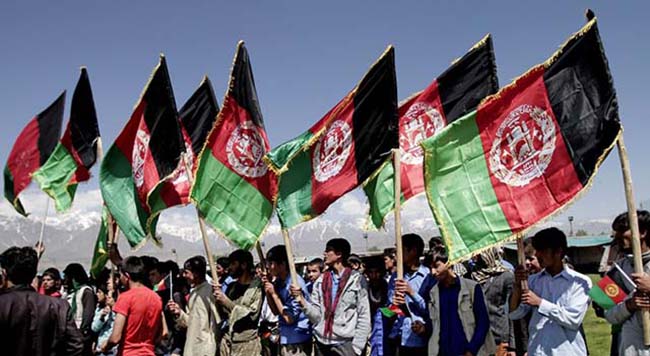Ethnocentrism will lead to violence and dismantle a nation. A peaceful life is possible when a nation does not view the society from the lens of ethnicity. In tribal structures, ethnic feelings outweigh national bonds. When ethnocentric view holds sway in a society, the people will not live a quiet life. It is most likely that claiming ethnic and racial superiority has resulted in destructive wars and bloody unrests across the human societies throughout the history and it continues up to now.
The historical wars, including World Wars, rooted in either ethnic superiority or religious supremacy. For instance, one nation imposed war on another or trampled upon the rights of an ethnic minority group, for considering that nation/group less important. On the other hand, politicians and policy-makers – including religious figures – capitalized on the issue to rule for longer time.
Ethnocentrism has been a challenging issue in Afghanistan in the past and it is still practiced considerably. For instance, a number of kings murdered people for their ethnic and racial backgrounds. Strong social and political tension based on ethnic inclination inflicted painful sufferings upon our nation. Worst of all, history was not an eye-opener for our political figures or nation and this feeling seems to continue. Apparently, ethnocentrism is one of the reason behind fundamentalism. Deeming themselves ethnically superior, fundamentalists contempt the rights and dignity of ethnic groups and discriminate them violently. Similarly, ethnocentrism and tribalism hold strong sway in rural areas of our society, which is very hot regarding the cases of marriage. Our tribal structure still rules the hearts and minds of our people.
Martin Luther aptly said, “We have learned to fly the air like birds and swim the sea like fish, but we have not learned the simple art of living together as brothers.” This is the problem of the modern world, mainly of Middle East. Human discourse in international instruments and UN’s charter have not alleviated the public sufferings.
Although Afghanistan is called a democratic country, the thick layer of ethnicity overshadows democratic practices and lead to the flagrant violation of human rights and freedom. For example, ethnic minority groups were targeted by the self-proclaimed Islamic State of Iraq and the Levant (ISIL) fighters within the two past years. They beheaded women and children, attacked mourning proceedings, and gunned down men with the aim of stoking ethnic/sectarian violence in Afghanistan. So, this is a strong blow to democracy.
If one considers other countries, people exercise their rights without being discriminated on the grounds of their race, ethnicity, belief or gender. There are multi-ethnic countries, but there is no tendency towards ethnicity. In other words, people deem themselves one nation rather than multi-ethnic groups. The followers of all religions exercise their rights and beliefs with no obstacles. Likewise, women play a significant role in social, political and economic fields. There is no gender discrimination in individual and social life. In fact, a pluralistic view rules the country and people tolerate one another however they dress up, practice their beliefs, etc.
The reason behind the tolerance and spirit of national solidarity is most likely to be their non-radical educational system. That is to say, the government seeks to centralize on national values and unity rather than involving radically religious issues in text books. Students grow in academic atmosphere, where there is no sign of ethnic, religious or sexual discrimination. During my visit to China, I had a visit from “66 Secondary School” based in Urumqi Economic Development Zone, I was impressed by a word of a 12 year-old female student – from an ethnic minority group – who said that they were all one Chinese and one nation regardless of their ethnicity or sect. According to the school’s principal, Chinese government had prohibited teaching religious tenets at schools.
The government’s strong control over social issues is beyond doubt. Chinese government has strict rules in terms of media, including social media as Facebook, Twitter, Google, and G-mail are locked. Meanwhile, the text books are under control. This policy is adopted to protect the nation’s rights. Indeed, according to the theory of “social contract”, the state is given authority by the public to protect the nation’s rights in return. When this policy ensures people’s rights and freedoms at the cost of aforementioned social media, the citizens will have no objection in this regard. It is believed that when parochial mindsets regarding ethnicity, caste, color and religion rule a society, peace will remain elusive. A state’s strict rule about social and political issues are significant if it protects nation’s rights and it will not be enforced unless officials are committed. The state will have to revive national feelings and inject the spirit of brotherhood into citizens. There are two main ways to strengthen national feelings in Afghanistan: first, ethnic tendency needs to be rooted out from government’s apparatus. Second, the government should develop a strategy to highlight tolerance, pluralistic view and national solidarity.
Home » Opinion » Ethnocentrism – A Menace to National Solidarity
Ethnocentrism – A Menace to National Solidarity
| Hujjatullah Zia

